Status Acadêmico
Professor/a titular
Birgit Hellwig
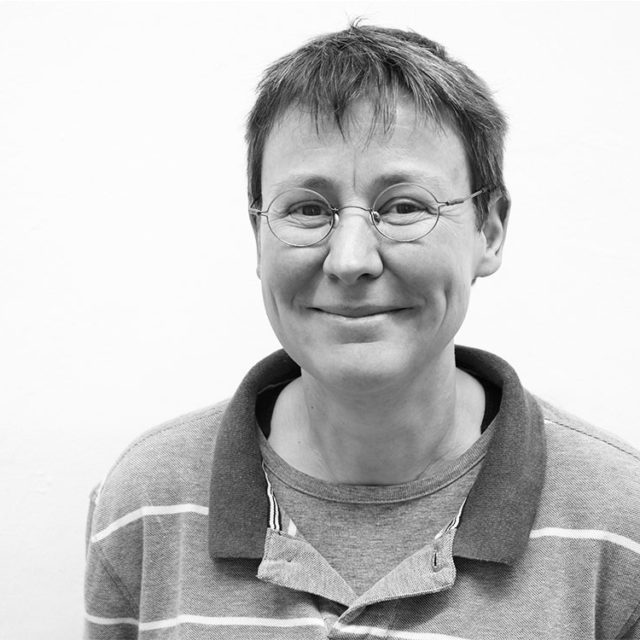
Birgit Hellwig
Birgit Hellwig studied African Linguistics at the Universities of Bayreuth and Hamburg (Germany) and she received her PhD in Linguistics from the University of Nijmegen (Netherlands). She is now at the University of Cologne (Germany), where she combines language documentation, acquisition and socialization. In 2014, she and her team started documenting the language used with […]
Birgit Hellwig studied African Linguistics at the Universities of Bayreuth and Hamburg (Germany) and she received her PhD in Linguistics from the University of Nijmegen (Netherlands). She is now at the University of Cologne (Germany), where she combines language documentation, acquisition and socialization. In 2014, she and her team started documenting the language used with and by Qaqet children in Papua New Guinea (https://qaqet.phil-fak.uni-
Participação
Elaine J. Francis
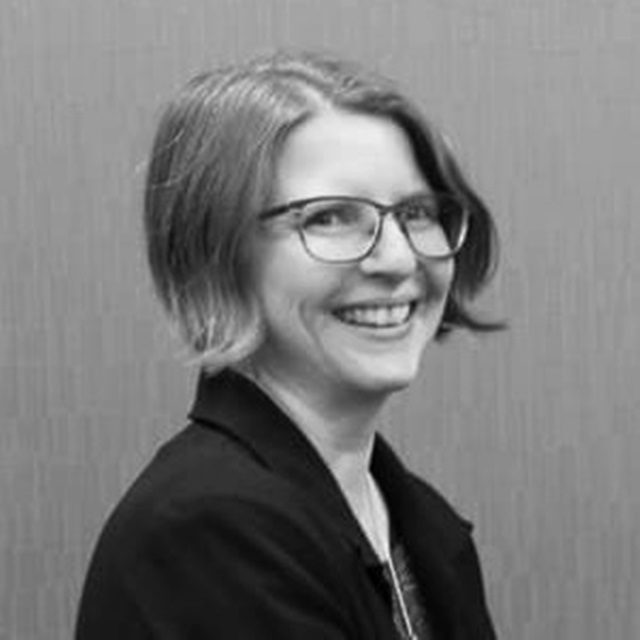
Elaine J. Francis
Elaine J. Francis is a professor in the Department of English at Purdue University, where she has been teaching linguistics and directing the Experimental Linguistics Lab since 2003. She completed her PhD in linguistics at the University of Chicago in 1999 and taught for three years in the Department of English at the University of […]
Elaine J. Francis is a professor in the Department of English at Purdue University, where she has been teaching linguistics and directing the Experimental Linguistics Lab since 2003. She completed her PhD in linguistics at the University of Chicago in 1999 and taught for three years in the Department of English at the University of Hong Kong. In her research, she investigates syntactic, discourse, and processing-based factors that affect the realization of syntactic alternations in English and Cantonese. Her research articles have been published in journals including Cognitive Linguistics, Journal of Linguistics, Language and Cognition, Linguistics, Natural Language and Linguistic Theory, and Lingua. She is the co-editor with Laura Michaelis of the edited collection Mismatch: Form-Function Incongruity and the Architecture of Grammar (CSLI Publications, 2003) and the author of the forthcoming book Gradient Acceptability and Linguistic Theory (Oxford University Press, 2022).
Participação
Gabriella Vigliocco
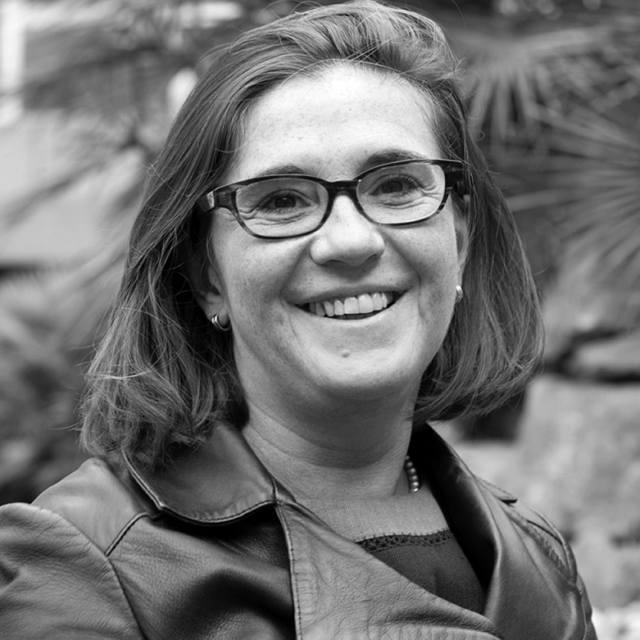
Gabriella Vigliocco
Gabriella is Professor of the Psychology of Language at University College London where she leads the Language and Cognition Lab (www.language-cognition-lab.org). She received her PhD in Experimental Psychology from University of Trieste. Before moving to UCL, she has worked at University of Arizona, the Max Planck Institute for Psycholinguistics and the University of Wisconsin. Her […]
Gabriella is Professor of the Psychology of Language at University College London where she leads the Language and Cognition Lab (www.language-cognition-lab.
Her work is interdisciplinary, bringing together theoretical insights from psychology, linguistics, neuroscience, philosophy and computer science. She uses methods from psychology, cognitive neuroscience and computational modelling, integrating evidence from different languages and different populations (adults, children, deaf individuals using British Sign Language, as well as individuals who have developed aphasia or apraxia after brain damage).
Participação
Gemma Boleda
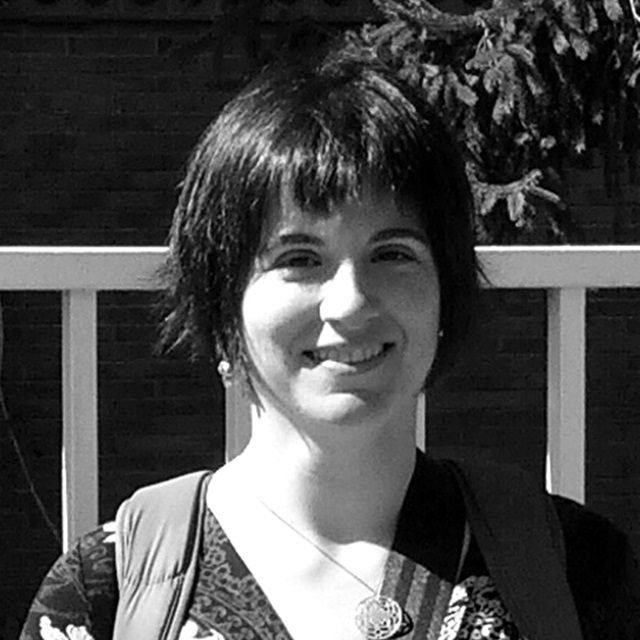
Gemma Boleda
Gemma Boleda is an ICREA Research Professor in the Department of Translation and Language Sciences of the Universitat Pompeu Fabra, Spain, where she heads the Computational Linguistics and Linguistic Theory (COLT) research group. She previously held post-doctoral positions at the Department of Linguistics of The University of Texas at Austin, USA, and the CIMEC Center […]
Gemma Boleda is an ICREA Research Professor in the Department of Translation and Language Sciences of the Universitat Pompeu Fabra, Spain, where she heads the Computational Linguistics and Linguistic Theory (COLT) research group. She previously held post-doctoral positions at the Department of Linguistics of The University of Texas at Austin, USA, and the CIMEC Center for Brain/Mind Sciences of the University of Trento, Italy. In her research, currently funded by an ERC Starting Grant, Dr. Boleda uses quantitative and computational methods to better understand how natural languages convey meaning. She is a member of the standing review committee of the TACL journal. She acted as area co-chair of ACL 2016, program co-chair of *SEM 2015, and local co-chair of ESSLLI 2015, and was an elected Information Officer of the SIGSEM Board 2013-2020.
Participação
Hamida Demirdache
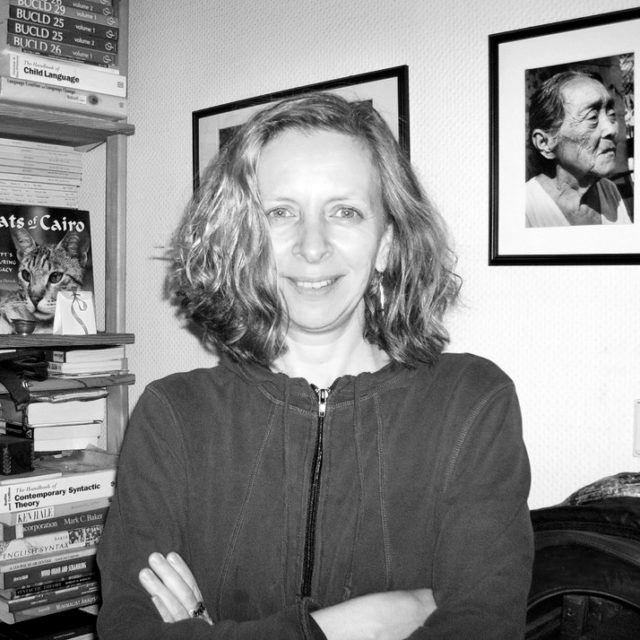
Hamida Demirdache
Hamida Demirdache is professor of linguistics at the University of Nantes, and member of the LLiNG Lab (UMR6310, CNRS/UN). Her interests lie at the syntax, semantics and language acquisition interfaces. Her research seeks to integrate theoretical and experimental methodologies to probe issues at these interfaces across a variety of typologically different adult and child languages. […]
Hamida Demirdache is professor of linguistics at the University of Nantes, and member of the LLiNG Lab (UMR6310, CNRS/UN). Her interests lie at the syntax, semantics and language acquisition interfaces. Her research seeks to integrate theoretical and experimental methodologies to probe issues at these interfaces across a variety of typologically different adult and child languages. She is particularly interested in understanding how languages express (and children acquire) concepts that are essentially abstract (e.g. tense, quantification) and which all languages convey while showing a widespread variation in the means used to linguistically express them across languages. What are the source and limits of crosslinguistic diversity at these interfaces?
Participação
Inbal Arnon
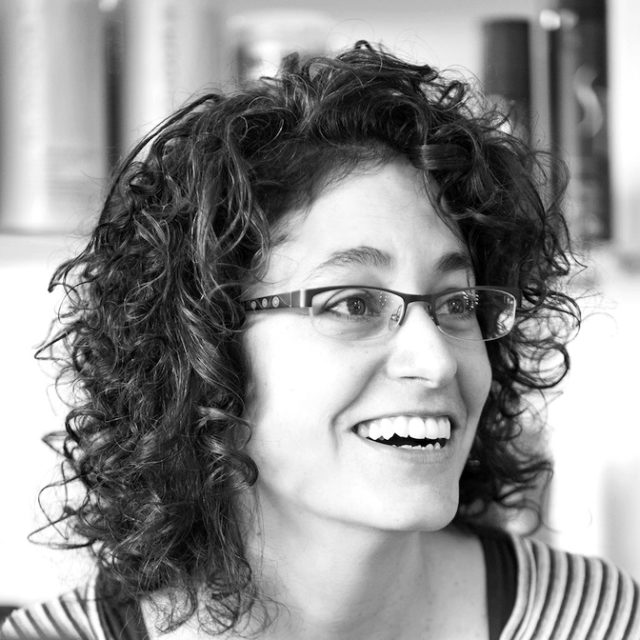
Inbal Arnon
Prof. Arnon is a linguist and developmental psycholinguist. Her main interests are first language acquisition, learning theory, psycholinguistics, and the way cognitive biases impact language emergence and structure. Her research lies at the intersection of Linguistics, Psychology, and Cognitive Science and uses a variety of experimental methods to explore how language is learned and how […]
Prof. Arnon is a linguist and developmental psycholinguist. Her main interests are first language acquisition, learning theory, psycholinguistics, and the way cognitive biases impact language emergence and structure. Her research lies at the intersection of Linguistics, Psychology, and Cognitive Science and uses a variety of experimental methods to explore how language is learned and how learning changes as a function of prior knowledge and experience.
Participação
Jeffrey M. Zacks
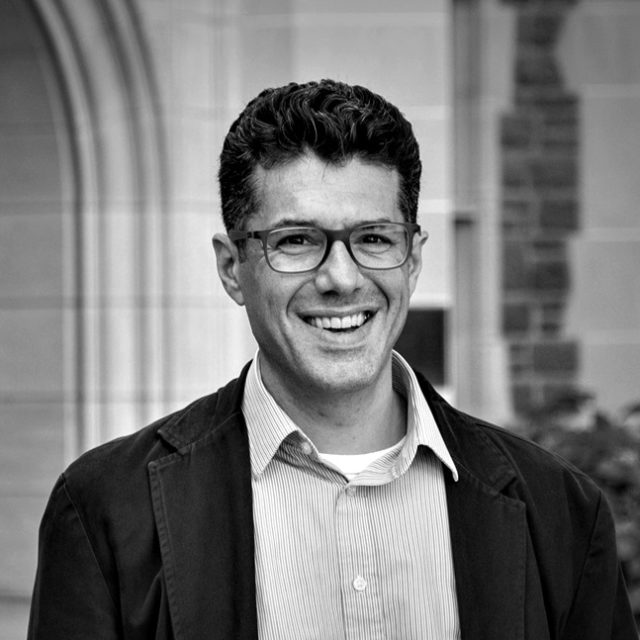
Jeffrey M. Zacks
Professor and Associate Chair of Psychological & Brain Sciences at Washington University, studying perception, memory, and action using converging cognitive neuroscience methods across the lifespan. Recipient of awards from the NSF, Psychonomic Society, APA, APF, and a fellow of AAAS, APS, APA, the Midwest Psychological Association, and the Society of Experimental Psychologists. Published three books, […]
Professor and Associate Chair of Psychological & Brain Sciences at Washington University, studying perception, memory, and action using converging cognitive neuroscience methods across the lifespan. Recipient of awards from the NSF, Psychonomic Society, APA, APF, and a fellow of AAAS, APS, APA, the Midwest Psychological Association, and the Society of Experimental Psychologists. Published three books, two edited volumes, 100 journal articles and articles for Salon, Aeon, and The New York Times.
Participação
John Baugh
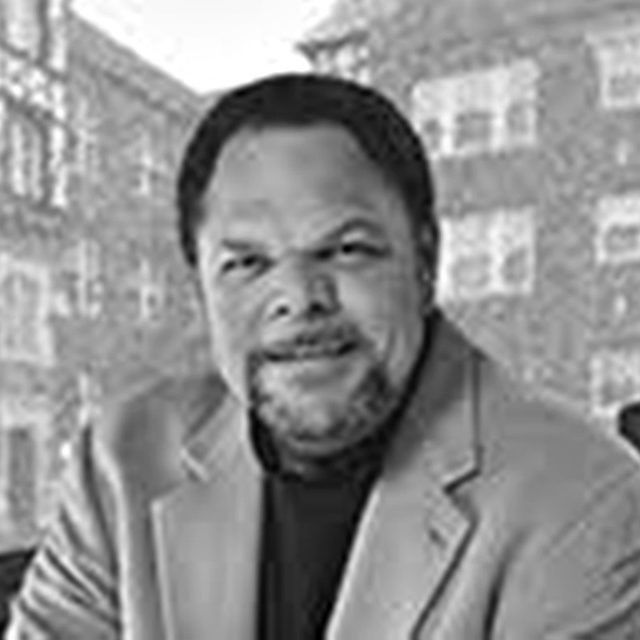
John Baugh
John Baugh is the Margaret Bush Wilson Professor in Arts and Sciences at Washington University in St. Louis. He attended Temple University as an undergraduate, majoring in Speech, Rhetoric, and Communication, and received his M.A. and Ph.D. in linguistics at the University of Pennsylvania. He is best known for formulating the concept of linguistic profiling […]
John Baugh is the Margaret Bush Wilson Professor in Arts and Sciences at Washington University in St. Louis. He attended Temple University as an undergraduate, majoring in Speech, Rhetoric, and Communication, and received his M.A. and Ph.D. in linguistics at the University of Pennsylvania. He is best known for formulating the concept of linguistic profiling and has conducted research on that topic in the United States, Brazil, the Caribbean, England, France, and South Africa. That research was variously supported by The Ford Foundation, The National Science Foundation, The United States Department of State, The United States Department of Justice, and the Rockefeller Foundation. Most of his research is devoted to finding ways to use linguistic science to advance equality and to improve the human condition globally. His most recent book is titled, Linguistics in Pursuit of Justice. (Cambridge University Press, 2018). He is a past president of the American Dialect Society, and currently serves on the Board on Behavioral, Cognitive, and Sensory Sciences of the National Academies of Science, Engineering, and Medicine. He is president-elect of the Linguistic Society of America, a fellow of the American Association for the Advancement of Science, and a member of the American Academy of Arts and Sciences.
Participação
Michelle Sheehan
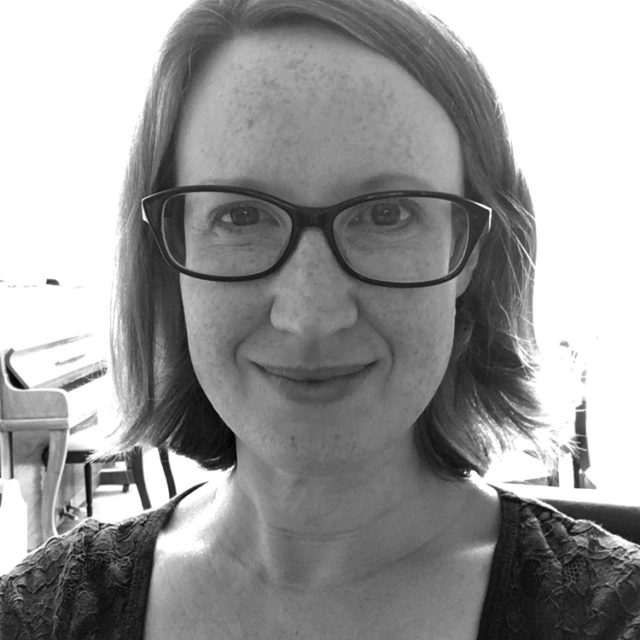
Michelle Sheehan
Michelle Sheehan specialises in comparative syntax and syntactic theory but also has interests in the syntax/semantic interface, the philosophy of langauge and the use of linguistics in language teaching.
Michelle Sheehan specialises in comparative syntax and syntactic theory but also has interests in the syntax/semantic interface, the philosophy of langauge and the use of linguistics in language teaching.
Participação
Nivedita Mani
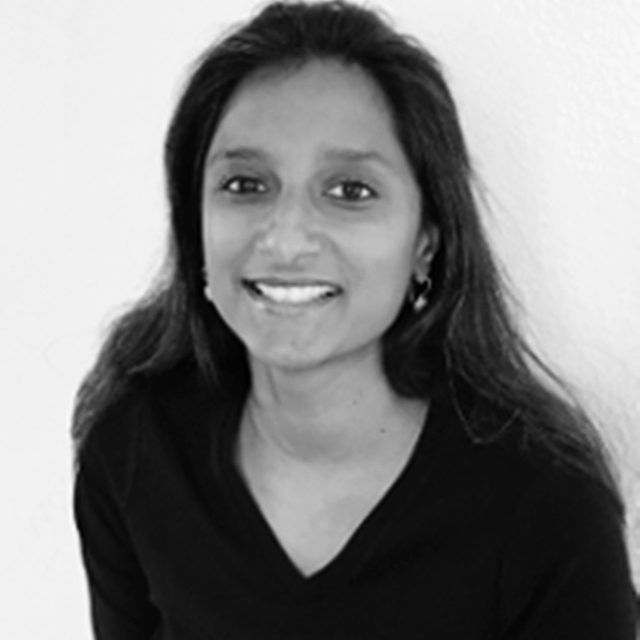
Nivedita Mani
Nivi Mani is Professor for Psychology of Language at the Institute for Psychology at the University of Goettingen. Her research examines the mechanisms underlying young children’s acquisition and processing of words with particular emphasis on what the child brings to the table in language acquisition.
Nivi Mani is Professor for Psychology of Language at the Institute for Psychology at the University of Goettingen. Her research examines the mechanisms underlying young children’s acquisition and processing of words with particular emphasis on what the child brings to the table in language acquisition.